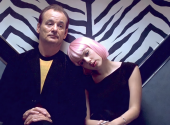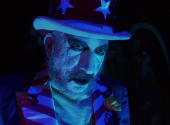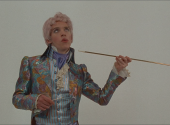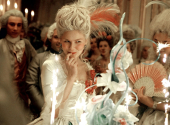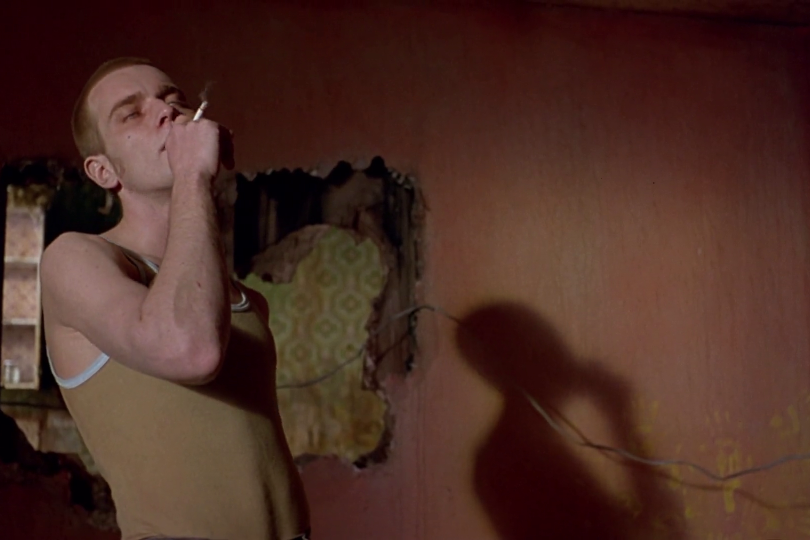
The Soundtracks of Our Lives #8: Trainspotting, Addictive Sounds
Movies about drugs are often a rollercoaster, mirroring the highs and lows, the chaos and the quiet desperation of addiction. While powerful acting and visceral visuals are crucial in conveying these tumultuous journeys, the soundtrack often elevates these films from mere narratives into immersive, unforgettable experiences. Music doesn’t just accompany the action; it becomes an ingrained language, speaking to the altered states, the distorted perceptions and the emotional core of characters battling substance abuse. And nowhere is this more evident than in Danny Boyle's 1996 masterpiece, Trainspotting.
Filmmakers dealing with the theme of addiction often delve into the extremes of human experience, from the euphoric highs to the agonizing depths of addiction. While visual storytelling plays a critical role, the soundtrack is powerful in conveying the complex emotions, psychological states and thematic undercurrents that define these narratives. And the right soundtrack can immerse the viewer, elevate the tension and ultimately, shape how we understand the film's message.
The music acts as a visceral representation of the characters' altered states, mirroring the highs and lows of drug use with jarring shifts in tempo, tone and genre. A pulsating, driving beat can embody the intense adrenaline rush of a score, while a melancholic, fragmented melody can reflect the bleak realities of withdrawal and the emotional toll of addiction. And it is precisely the theme of addiction, particularly to heroin, that forms the backdrop to Danny Boyle's creation.
It is the story of three drug addicts, Mark Renton (Ewan McGregor), Simon "Sick Boy" Williamson (Jonny Lee Miller) and Daniel "Spud" Murphy (Ewen Bremner), accompanied by their faithful friend, not a drug addict but a boozer and fight-lover, Francis "Franco" Begbie (Robert Carlyle) and Tommy Mackenzie (Kevin McKidd), a simple and humble football player soon to be candidate for heroin addiction, who spend a squalid existence in a depressed and run-down area of Edinburgh, in a slow but inexorable turn of events.
The opening sequence of Trainspotting is unforgettable, creating an electrifying start. The film opens with Iggy Pop's "Lust for Life," a powerful song that sets the pace. The explosive energy of the track matches the rapid visuals of Renton and his friends running through the city. The choice of this song mirrors Renton's character perfectly. His reckless approach to life is evident in the pulsating beat and lyrics that celebrate chaos.
This defines not only his personality but also the lifestyle that he and his friends embrace, drawing viewers into their world. A world of filth, where the protagonists, drug addicts, live a normality of their own that is probably disconcerting, to say the least, for those who are not in the business, that is, the universe of heroin and addiction. Various sequences of the movie narrate the issue, describing it from several points of view.
Such as the scene, that has become famous, showing the dirtiest loo in Scotland (as advertised by the caption), in which Renton takes a running start to expel his needs after a quick withdrawal, but then he dives into the toilet to collect the heroin capsules he had defecated a moment before. In the background, Primal Scream's song "Trainspotting" is perfect, because it renders so well the absurdity of the situation.
Arguably the most powerful and unsettling use of music in the film, Lou Reed's melancholic "Perfect Day" backs Renton's drug-induced stupor and near-death experience after an overdose. The track's gentle piano and Reed's resigned vocals contrast sharply with the horrific visuals of Renton sinking into a filthy carpet, making the scene even more poignant and disturbing. The juxtaposition is masterful: a song seemingly about contentment applied to a moment of utter despair. The sweetness of the music becomes almost unsettling, adding a layer of dark irony to the scene.
Sometimes, a cheerful, upbeat song playing during a scene of profound sadness creates irony and offers a commentary on the character's denial or the absurdity of their situation. That is the case of the clubbing sequences. The director's choice went to pieces that well represent the disco scene of those years and tell the story on screen: David Bowie and Iggy Pop's "Nightclubbing", Sleeper's "Atomic" and New Order's rousing and electrifying "Temptation".
The pulsating beats of "Atomic" provide the perfect backdrop to a wild clubbing scene. The music captures the raw energy and hedonism of the moment, immersing the audience in the chaotic world of the characters as they lose themselves in the music and the moment. On the other hand, the haunting melody of "Temptation" mirrors Renton's internal struggles and desire for a new beginning.
Fast forward to the end of the movie, where the chaos culminates in a heart-pounding sequence set to "Born Slippy .NUXX" by Underworld. This electrifying track perfectly captures the frenetic energy and emotional turmoil of the film's climax. As Renton makes a life-changing decision and races off into the unknown, "Born Slippy .NUXX" propels the audience into a whirlwind of emotions. It's a fitting finale that leaves you exhilarated and contemplative all at once.
The success of Trainspotting highlights the importance of a well-crafted soundtrack in movies about drug use. It demonstrates how music can transcend simple accompaniment and become an integral part of storytelling, deepening the audience's understanding of the characters' experiences and leaving a lasting, unforgettable impact. The soundtrack serves not just to show us the realities of addiction but to help us feel it, and that makes all the difference.
The music chosen sets a distinct atmosphere, presenting a vivid portrayal of life and struggles in Edinburgh during the 1990s while aligning with the film's gritty aesthetic. Many movies use music to set the tone, but few capture the energy of a generation like this one. And Trainspotting didn’t just use music; it weaponised it. To find a similar impact, one must go to the early 2000s, with Rob Zombie's directorial debut, his haunting and musically masterful House of 1000 Corpses, the feature of our next episode.
What makes the music choices in Trainspotting so effective? How did the soundtrack impact the careers of the artists featured? What role did the soundtrack play in the film's success? How has the legacy of the Trainspotting soundtrack endured over the years? And why is the Trainspotting soundtrack still relevant today?
Leave your opinion in the comments below!
If you have found an error or typo in the article, please let us know by e-mail info@insounder.org.


